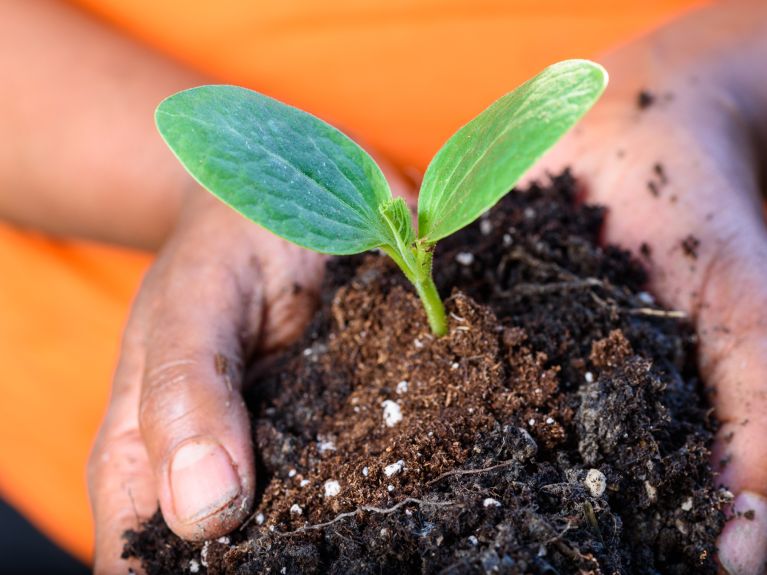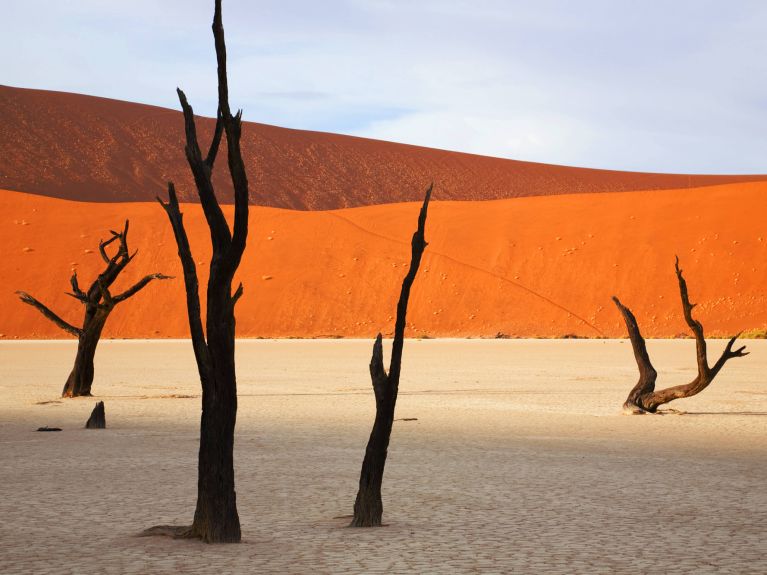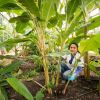Seeds of hope
Fertile soils are a precondition for sustainable development. What Germany is doing worldwide to protect the soil quality.

“If the soil gets worse, things get worse for me,” says farmer Rosalie Djedohoun from Benin in a video produced by the German Federal Ministry for Economic Cooperation and Development. She has learned how to keep her land in good shape, for example, by ensuring that she alternates her crops, planting corn one year, beans the next.
Around the world, Germany is supporting around 800 projects to protect the soil. Since 2014, the largest German soil protection programme run by German development cooperation experts under the “A World Without Hunger” special initiative has been up and running in Benin, Burkina Faso, Ethiopia, Kenya, Madagascar and India. Soil protection is also one of the UN’s 17 Sustainable Development Goals: The plan is to neutralise soil degradation the world over by the year 2030.

Soil is a valuable and non-renewable resource. If its quality deteriorates such that it can no longer be farmed, then the status is termed degradation. This happens if soils are used wrongly or too intensively: For example, if only monocultures are farmed and the wrong fertilizers used. Or if too many animals graze on too small a surface. Or if heavy vehicles like trucks or hordes of tourists compact the soil. Sealing the land surface, pesticides in the groundwater or felling forests all have a negative impact on soil quality. Climate change fosters degradation by bringing droughts and heavy rains. According to a statement by Deutsche Gesellschaft für Internationale Zusammenarbeit 30 percent of the soil world-wide is already degraded, with the losses greatest in Subsaharan Africa. One third of the rural population world-wide lives in affected areas. For them, poor soils have a direct impact on their nutrition and income.
Programme for smallholders
For this reason, the German soil protection programmes primarily address smallholders who are trained to farm their lands in a sustainable manner. The first step is to investigate the soil. Then advisors explain methods to the farmers that will make the soil more fertile: Using crushed limestone or compost, planting pulses to enrich the soil with nitrogen, ploughing differently or not at all, or planting trees. The latter are important to retain water in the ground and generate critical biomass.
Swift successes
Peter Sotta from the village of Baraluru in Kenya had his soil tested in a mobile lab. The results showed that his land was very strained, it lacked humus and key plant nutrients. The first thing Sotta did was to lime the land and it was swiftly a success: In the last harvest season, his corn stood a strong 2.50 meters high, while the plants on the neighbouring field were a meter lower. “It’s the best corn I’ve harvested in years,” Sotta says with satisfaction.
New prospects
The practical tips for farmers are only one part of the soil protection programme. It is also includes improving the legal and political framework, for example land laws. Only if you can be sure that the land that you farm will still belong to you tomorrow will you likely invest in longer-term protective measures and give the soil time to regenerate.
Intact soils not only protect the eco-system and counteract climate change. They gift farmers better harvests and thus greater income. If no member of the family goes hungry, then no one needs to move to a town to find a job, let alone migrate a country far from home.
